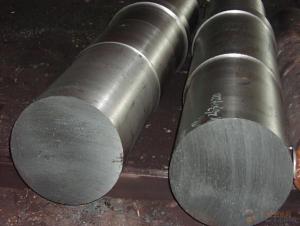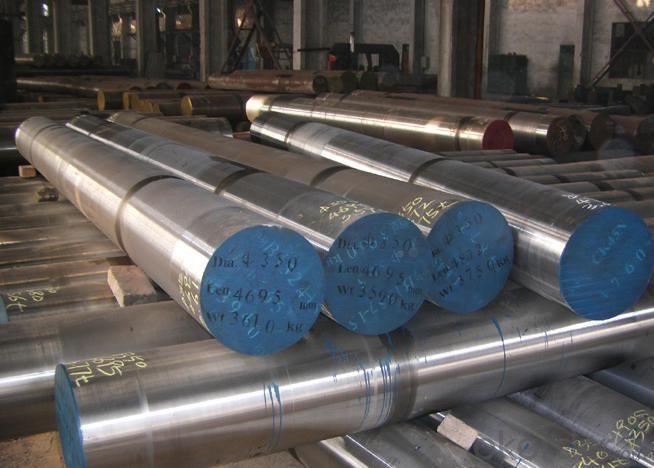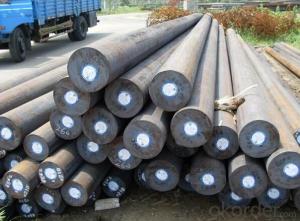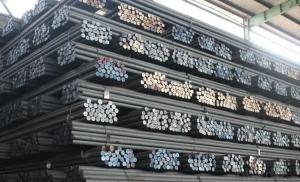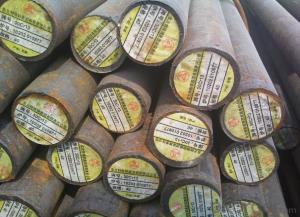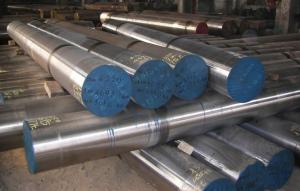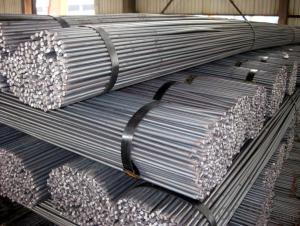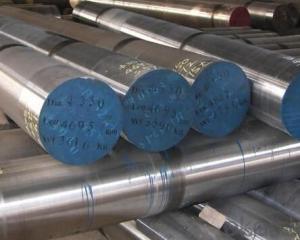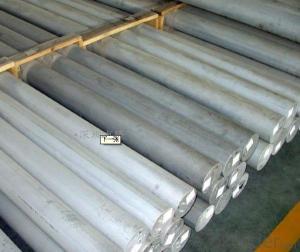Bearing Round Bar for Special Use
- Loading Port:
- China Main Port
- Payment Terms:
- TT or LC
- Min Order Qty:
- -
- Supply Capability:
- -
OKorder Service Pledge
OKorder Financial Service
You Might Also Like
Product Description:
OKorder is offering Bearing Steelsat great prices with worldwide shipping. Our supplier is a world-class manufacturer of steel, with our products utilized the world over. OKorder annually supplies products to European, North American and Asian markets. We provide quotations within 24 hours of receiving an inquiry and guarantee competitive prices.
Product Applications:
Our products have been used in all kinds of areas, such as aviation, aerospace, navigation, nuclear, energy, chemical industry, electronic information, petrochemical, automotive, instrument and meter, Communication ,transportation, and medical instruments, etc. Bearing ring,steel rolling mill ,machinery, 100Cr6 bearing steel ball is widely used in high-speed and low-noise bearing, bicycle, motorcycle, automobile, bags, electronics.
.
Product Advantages:
OKorder's Bearing Steels are durable, strong, and resist corrosion.
Main Product Features:
· Premium quality
· Prompt delivery & seaworthy packing (30 days after receiving deposit)
· Corrosion resistance
· Can be recycled and reused
· Mill test certification
· Professional Service
· Competitive pricing
Product Specifications:
Grade | AISI 52100, ASTM E52100, DIN 1.3505,JIS SUJ2, GCr15 |
Dimensions | Diameter: 30-60mm Length: 2000-13000mm or as required |
Shape | Round Bar |
Type | Alloy Steel Bar |
Delivery Condition | Black Surface |
Material | Bearing Steel |
Technique | Hot Rolled |
Processing of Bearing Steel Round Bar
The processing of Bearing Steel Round Bar is hot rolled (strictly control sulphur, phosphorus and non-metallic inclusions content and distribution)
Chemical Composition of Bearing Steel Round Bar
C | Si | Mn | Cr | Ni | Cu |
Equal or less than | |||||
0.95-1.05 | 0.15-0.35 | 0.25-0.45 | Cr:1.40-1.65 | 0.30 | 0.25 |
FAQ:
Q1: Why buy Materials & Equipment from OKorder.com?
A1: All products offered byOKorder.com are carefully selected from China's most reliable manufacturing enterprises. Through its ISO certifications, OKorder.com adheres to the highest standards and a commitment to supply chain safety and customer satisfaction.
Q2: How do we guarantee the quality of our products?
A2: We have established an advanced quality management system which conducts strict quality tests at every step, from raw materials to the final product. At the same time, we provide extensive follow-up service assurances as required.
Q3: How soon can we receive the product after purchase?
A3: Within three days of placing an order, we will begin production. The specific shipping date is dependent upon international and government factors, but is typically 7 to 10 workdays.
Images:
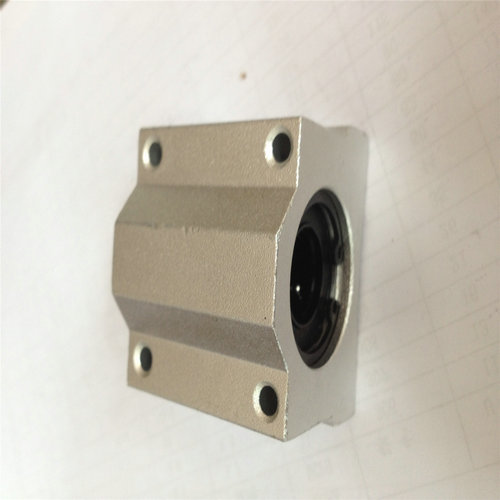
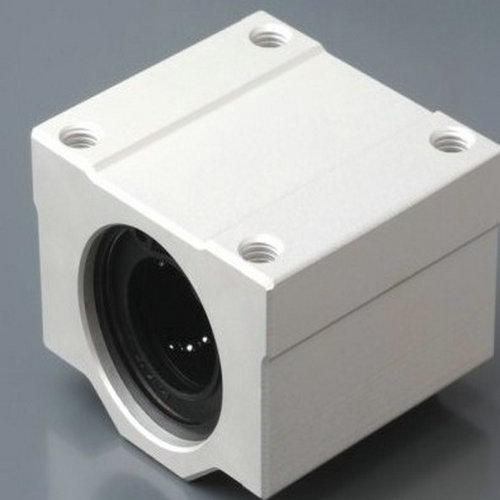
- Q: What are the most common alloys used in special steel?
- The most common alloys used in special steel are chromium, nickel, molybdenum, and vanadium.
- Q: What are the properties of precipitation-hardening steel?
- Precipitation-hardening steel, also known as PH steel, possesses several unique properties. Firstly, it has excellent strength and toughness, making it suitable for various demanding applications. This type of steel can be heat treated to achieve higher strength levels, allowing it to withstand heavy loads and resist deformation. Additionally, precipitation-hardening steel offers good corrosion resistance, making it ideal for use in harsh environments. It also exhibits good machinability, enabling ease of fabrication. These properties make precipitation-hardening steel a versatile material widely used in industries such as aerospace, automotive, and medical.
- Q: What are the requirements for special steel used in mining equipment manufacturing?
- The requirements for special steel used in mining equipment manufacturing are quite specific and demanding due to the harsh and challenging conditions associated with mining operations. Here are some key requirements: 1. High strength and toughness: Special steel used in mining equipment must possess excellent strength and toughness to withstand heavy loads, impact, and abrasion. This enables the equipment to withstand the demanding conditions encountered during mining operations. 2. Wear resistance: Mining equipment is exposed to abrasive materials such as rocks, ores, and minerals. Hence, the special steel used in their manufacturing needs to exhibit exceptional wear resistance properties to minimize wear and prolong the equipment's lifespan. 3. Corrosion resistance: Mining operations often take place in wet and corrosive environments, such as underground mines or near bodies of water. Special steel used in mining equipment should have good corrosion resistance to prevent rusting and degradation, ensuring the equipment's longevity and reliability. 4. Heat resistance: Mining equipment may generate significant heat during operation, especially in applications like drilling or cutting. Therefore, the special steel must have excellent heat resistance properties to withstand high temperatures without losing its strength or hardness. 5. Weldability and machinability: Special steel used in mining equipment should be easily weldable and machinable to facilitate the manufacturing process. This ensures that the equipment can be efficiently constructed, repaired, or modified as required. 6. Certification and compliance: Mining equipment manufacturers often require special steel to meet specific industry standards and certifications, such as ISO 9001, ASTM, or API. Compliance with these standards ensures that the steel used in the equipment meets the necessary quality and performance requirements. Overall, the requirements for special steel used in mining equipment manufacturing revolve around strength, toughness, wear resistance, corrosion resistance, heat resistance, weldability, machinability, and compliance with industry standards. Meeting these requirements ensures that the steel can withstand the demanding conditions of mining operations and contribute to the durability and performance of the equipment.
- Q: What are the main applications of special steel in the power generation equipment?
- Special steel is commonly used in power generation equipment for its high strength, corrosion resistance, and thermal stability. Some key applications include turbine blades, heat exchangers, boiler tubes, and generator components. These specialized steel alloys ensure reliable performance, efficiency, and durability in demanding power generation environments.
- Q: How does special steel contribute to the heat resistance of products?
- Special steel contributes to the heat resistance of products by offering superior mechanical properties that allow them to withstand high temperatures without deforming or losing their structural integrity. The unique composition and manufacturing process of special steel result in enhanced heat resistance, making it an ideal material for applications exposed to extreme heat conditions. Special steel is designed to have a high melting point, which means it can endure higher temperatures compared to standard steel. This is achieved by incorporating alloying elements such as chromium, nickel, molybdenum, or vanadium, which improve the steel's ability to withstand heat. These elements form stable oxide layers on the surface of the steel, acting as a barrier against oxidation and preventing the steel from losing strength or becoming brittle when exposed to high temperatures. Furthermore, special steel is often treated with heat-resistant coatings or undergoes specialized heat treatment processes to enhance its heat resistance even further. These treatments can include quenching and tempering, annealing, or precipitation hardening, depending on the specific requirements of the product. These processes alter the steel's microstructure, improving its resistance to thermal fatigue, creep, and thermal shock. The heat resistance provided by special steel allows for the creation of products that can operate in demanding environments such as aerospace, automotive, power generation, and industrial applications. For instance, in the aerospace industry, special steel is used to manufacture components like turbine blades that are exposed to extremely high temperatures in jet engines. In the automotive industry, it is utilized for manufacturing exhaust systems and engine components that need to withstand intense heat from combustion processes. In summary, special steel contributes to the heat resistance of products by offering a higher melting point, improved oxidation resistance, and enhanced mechanical properties that allow them to maintain their structural integrity and functionality even under extreme heat conditions. This makes special steel an essential material for various industries seeking reliable and durable solutions that can withstand high temperatures.
- Q: What are the requirements for special steel used in packaging machinery?
- The specifications for the special steel utilized in packaging machinery can differ depending on the specific application and type of packaging machinery employed. Nonetheless, there are certain common expectations for this type of steel. To begin with, it is crucial for the special steel employed in packaging machinery to exhibit exceptional resistance to corrosion. This is because packaging machinery frequently comes into contact with various liquids, such as water, oils, and cleaning solutions. The corrosion resistance feature aids in preventing the steel from deteriorating or rusting when exposed to these substances, thereby ensuring the longevity and dependability of the machinery. Secondly, the steel should possess a high level of hardness and wear resistance. Packaging machinery often entails moving parts and components that are constantly subjected to friction and wear. Therefore, the steel employed in these parts must be capable of enduring repetitive contact and abrasion without undergoing significant wear or deformation. The high level of hardness also helps in preventing the formation of scratches or grooves on the surfaces, which could compromise the quality of the packaging. Furthermore, the special steel should possess good machinability and formability. Packaging machinery frequently requires complex shapes and intricate designs, necessitating steel that can be easily machined and formed into the desired shapes and sizes. This facilitates the manufacturing process and allows for the creation of precise and accurate components. Additionally, the steel should possess high tensile strength and toughness. Packaging machinery may be subjected to mechanical stresses and impacts during operation, and the steel used in its construction must be capable of withstanding these forces without fracturing or breaking. The high tensile strength ensures the structural integrity of the machinery, while toughness helps in preventing the formation of cracks or fractures under sudden loads or impacts. Lastly, the special steel employed in packaging machinery should be cost-effective and readily available. The cost of the steel should be reasonable and within the manufacturer's budget, without compromising the quality or performance of the machinery. Additionally, the steel should be readily available in the market to ensure a continuous supply for manufacturing purposes. In conclusion, the requirements for special steel used in packaging machinery encompass corrosion resistance, high hardness and wear resistance, good machinability and formability, high tensile strength and toughness, as well as cost-effectiveness. Fulfilling these requirements guarantees the durability, reliability, and efficiency of the packaging machinery in various industrial applications.
- Q: Is special steel recyclable?
- Yes, special steel is recyclable.
- Q: How does special steel contribute to the manufacturing of consumer goods?
- Special steel plays a significant role in the manufacturing of consumer goods by providing enhanced durability, strength, and performance to various products. This type of steel is engineered with specific properties and alloys to meet the high standards and demands of consumer goods manufacturing. One of the primary ways special steel contributes to the manufacturing of consumer goods is through its strength and durability. It provides a solid foundation for products that need to withstand heavy use, such as kitchen appliances, power tools, and automotive components. The strength of special steel ensures that these products can withstand daily wear and tear, resulting in increased lifespan and reduced maintenance costs for consumers. Moreover, special steel's corrosion resistance properties make it an ideal material for consumer goods that are exposed to harsh environments or moisture. This is particularly important for products like kitchen utensils, cutlery, and bathroom fixtures, as they often come into contact with water or corrosive substances. By incorporating special steel, manufacturers can ensure that their products remain rust-free and maintain their aesthetic appeal over time. In addition to strength and corrosion resistance, special steel also offers enhanced performance capabilities. For instance, it can be used in the manufacturing of consumer goods that require high heat resistance, such as cooking appliances and automotive engine components. Special steel's ability to withstand extreme temperatures without deforming or losing its properties makes it a crucial material in these applications. Furthermore, special steel's versatility allows it to be tailored to specific consumer needs. Manufacturers can choose from a wide range of special steel alloys with varying characteristics, enabling them to optimize the performance of their products. This flexibility allows for the production of customized consumer goods that meet specific requirements, whether it be lightweight materials for portable electronics or impact-resistant components for sporting equipment. Overall, special steel plays a vital role in the manufacturing of consumer goods by providing strength, durability, corrosion resistance, and enhanced performance. Its unique properties contribute to the production of high-quality products that can withstand heavy use, offer extended lifespans, and ensure customer satisfaction.
- Q: How does mold steel resist wear and erosion?
- Mold steel resists wear and erosion due to its high hardness, toughness, and resistance to deformation. It has a fine microstructure that allows it to withstand the repetitive stresses and strains associated with molding processes. Additionally, certain alloying elements like chromium and molybdenum enhance its corrosion resistance, making it more durable against wear and erosion caused by environmental factors.
- Q: Can special steel be used in the wastewater treatment industry?
- Yes, special steel can be used in the wastewater treatment industry. Special steel, such as stainless steel, is highly resistant to corrosion and can withstand harsh environments, making it suitable for various applications in wastewater treatment facilities. It is commonly used in the construction of tanks, pipes, valves, and other equipment used for water treatment and purification processes. Special steel's durability and resistance to chemical and biological agents make it an ideal material for ensuring the longevity and efficiency of wastewater treatment systems.
Send your message to us
Bearing Round Bar for Special Use
- Loading Port:
- China Main Port
- Payment Terms:
- TT or LC
- Min Order Qty:
- -
- Supply Capability:
- -
OKorder Service Pledge
OKorder Financial Service
Similar products
Hot products
Hot Searches
Related keywords
